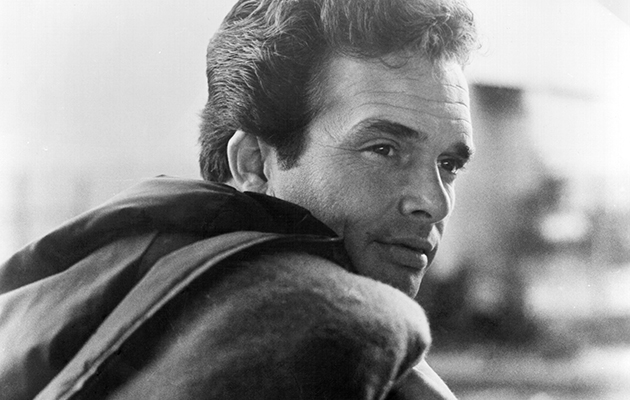If the life story that has informed and inspired Haggard’s songs reads like a script for an indigestibly corny movie about a hopelessly cliched idea of a country singer, it’s because many of our cliched ideas of a country singer have been inspired by Haggard’s picturesque biography. Born, on April 6, 1937 in California to parents who’d moved from Oklahoma during the Great Depression, raised partially in a converted boxcar outside Bakersfield, devastated by the early death of his railroad worker father, prompted to an adolescence and early adulthood of misbehaviour and outright criminality, eventually redeemed by music, though not without subsequent mis-steps (difficulties with drink and drugs, one bankruptcy, four divorces, including one from the singer Leona Williams). In the annals of significant musical meetings, Robert Johnson’s deal with the Devil at a Mississippi crossroads is rivalled arguably in importance – and certainly in verifiability – by Haggard’s presence among the captive audience when Johnny Cash played San Quentin prison on New Year’s Day, 1959. The man and the myth are unusually closely related in Haggard’s case. Would his songs be so revered, you might wonder, if they’d been written by an abstemious accountant?
“You or I will probably never know about that,” he says. “That’s a great question, though. You ever get an answer, let me have it.”
He smiles, his creased face suddenly illuminated by two racks of incongruous, impeccable white teeth.
“Take Job, in The Bible,” he ponders. “If the story of Job was taken away from him, what would he be worth? He had three thousand camels, he was a wealthy man. But the storyline, the devil tempting him and taking all his stuff away, and his re-rise to be even better than what he was before, that makes him more interesting. I like him. If I go to Heaven, I want to talk to Job. I want to know how he did that.”
There are parallels, granted: Job, like Haggard, had a second family relatively late in life. Haggard’s first marriage, to childhood sweetheart Leona Hobbs, produced four now-adult children (the eldest, Noel, is also a country singer). Today, Haggard and Theresa have a twenty-year-old daughter, Jenessa, and a teenage son, Ben – the latter has recently taken up guitar duties in Haggard’s long-serving band, The Strangers (“That’s ’cos he’s real good,” beams his father. “Anyone in my family has to be better than someone I can hire.”) There the similarities would appear to end: Job lived until he was 140, and still never made an album half as good as 1968’s Mama Tried.
“I think,” continues Haggard, “my trip to prison when I was younger was a definite help to my success in country music. Though I certainly didn’t do it on purpose.”



